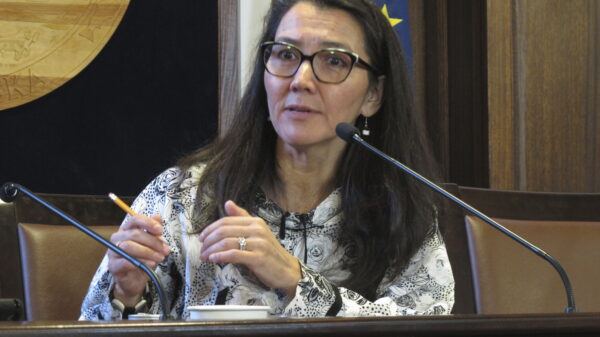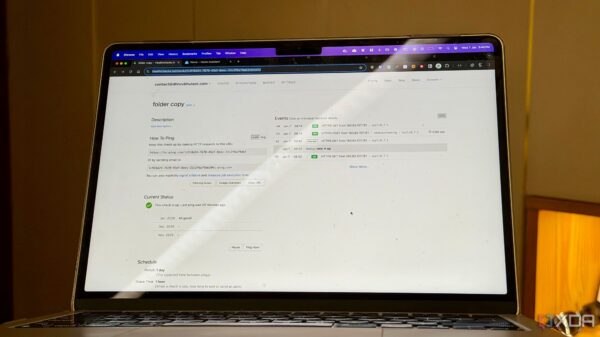California may be facing an early and severe flu season due to a combination of low vaccination rates and recent mutations of the virus. Health experts warn that the state is particularly vulnerable to a rise in flu cases, with early warning signs already emerging. Los Angeles County has reported its first flu-related death of the season, while countries such as Australia and Japan are experiencing record-breaking flu activity.
Traditionally, flu season in California peaks after the Christmas holidays, but Dr. Elizabeth Hudson, regional physician chief of infectious diseases at Kaiser Permanente Southern California, anticipates an increase in viral activity in the next two to three weeks. “We’re expecting an early and likely sharp start to the flu season,” she remarked.
Last year’s flu season was notably severe for California, raising concerns about back-to-back challenging years. Dr. Peter Chin-Hong, an infectious diseases expert at UC San Francisco, highlighted the dual issues of declining vaccination rates and the emergence of a “souped-up mutant” strain, which could lead to higher infection rates and increased hospitalizations.
Concerns Over New Flu Subvariant
The emergence of the H3N2 subclade K variant adds to the state’s challenges. This new strain appeared late in the summer, well after health officials had finalized the composition of this year’s flu vaccine back in February. Dr. Hudson noted that this variant has begun to dominate flu cases in Japan and the UK, potentially creating a mismatch between the vaccine strains and circulating viruses.
Despite uncertainties regarding the effectiveness of this year’s flu shot against subclade K, data from the UK suggests that current vaccines still offer significant protection against severe illness. According to the British government, vaccinated children have been found to be 70% to 75% less likely to require hospital care, while adults show a 30% to 40% reduction in hospitalizations.
In California, the Los Angeles County Department of Public Health strongly encourages residents to get vaccinated, especially before the holiday season. “Public Health strongly urges everyone who has not received the flu vaccine yet this year to do so now,” the department stated.
Global Flu Trends and Local Implications
Concerns about the flu are not confined to California. Australia has reported an earlier and more severe flu season, with over 410,000 lab-confirmed cases, surpassing the previous record of 365,000 cases. Dr. Michael Wright from the Royal Australian College of General Practitioners remarked, “This is not a record we want to be breaking.” The flu season in Australia has particularly affected children, raising alarms about similar trends potentially occurring in the U.S.
Health officials in Los Angeles caution against drawing direct parallels with Australia, noting that the severity of flu seasons can vary significantly due to factors like circulating strains and existing immunity levels. “It is difficult to predict what will happen in the United States and Los Angeles,” the department stated.
The emergence of H3N2 subclade K has disrupted the flu landscape, igniting outbreaks in Japan and parts of Europe. Japan has reported a national alert as flu cases surge, particularly among vulnerable groups such as children and the elderly. Taiwanese health authorities have warned of a potential second peak in flu cases, with significant surges expected around the Lunar New Year on February 17, 2024.
Vaccination Rates and Public Health Concerns
Vaccination rates have been declining, a trend observed in both Australia and the United States. In Australia, only 25.7% of children aged six months to five years were vaccinated against the flu this year, the lowest rate since 2021. In the U.S., as of late April, only 49.2% of children had received their flu shots, down from 53.4% the previous season, and significantly lower than the 63.7% rate during the 2019-20 season.
Officials recommend the flu vaccine for everyone aged six months and older, with specific higher-dose versions available for seniors. Innovative approaches, such as allowing FluMist to be mailed directly to homes, have been introduced to encourage vaccination.
Aside from vaccination, public health experts advise frequent hand washing, avoiding close contact with sick individuals, and wearing masks in crowded indoor settings. Antiviral medications like Tamiflu are also recommended for those infected, particularly for vulnerable populations such as infants and the elderly.
Dr. Hudson emphasized the importance of evidence-based information regarding flu vaccinations, stating, “Vaccines save lives. The flu vaccine in particular saves lives.” Health officials urge the public to prioritize vaccination as the flu season approaches and to remain vigilant as the situation continues to evolve.






































































